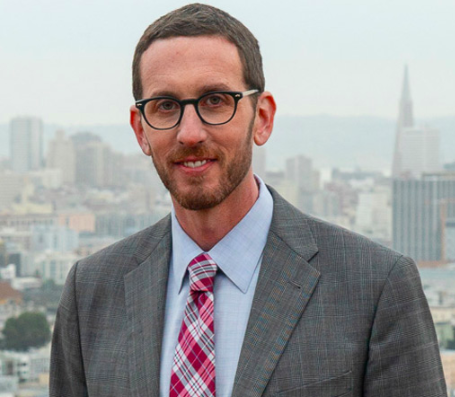State Sen. Scott Wiener, in consultation with some of the leaders of the AI industry, has proposed a series of regulations which he says will help protect Californians from unexpected problems the new technology could create.

But he’s missing one of the most important points—the profound human impact of job displacement.
Wiener:
As a global technology leader, California can ensure the biggest AI systems built here improve our lives – fostering revolutions in health care, climate action, and creative industries – without compromising our safety. We’ve seen the consequences of unchecked new technology growth that fails to evaluate, understand, or mitigate risks. By putting appropriate and responsible guardrails in place to guide AI, this bill provides an opportunity to apply these hard lessons and achieve a better result for humanity.”
More from the press release:
Experts at the forefront of AI have expressed concern that failure to take appropriate precautions could have severe consequences, including risks to critical infrastructure, cyberattacks, and the creation of novel biological weapons. A recent survey found 70% of AI researchers believe safety should be prioritized in AI research more while 73% expressed “substantial” or “extreme” concern AI would fall into the hands of dangerous groups.
These are very valid concerns.
The rules are fairly practical and relatively limited:
Setting clear standards for developers of AI models with computing power greater than 1026 floating-point operations that cost over $100 million to train and would be substantially more powerful than any AI in existence today
Requiring developers of such large “frontier” AI models to take basic precautions, such as pre-deployment safety testing, red-teaming, cybersecurity, safeguards to prevent the misuse of dangerous capabilities, and post-deployment monitoring
Creating whistleblower protections for employees of frontier AI laboratories
Requiring transparent pricing and prohibiting price discrimination to protect consumers and to ensure startup developers have equal opportunities to compete and innovate
Empowering California’s Attorney General to take legal action in the event the developer of an extremely powerful AI model causes severe harm to Californians or if the developer’s negligence poses an imminent threat to public safety
Establishing a new public cloud computer cluster, CalCompute, to enable startups, researchers, and community groups to participate in the development of large-scale AI systems and align its benefits with the values and needs of California communities
Establishing an advisory council to support safe and secure open-source AI.
Sure, fine.
Except that it completely ignores another massive issue that could lead to significant misery and social disruption.
There are at least 500,000 people in California today whose primary occupation is driver. Truck drivers, cab drivers, delivery drivers, limo drivers, Uber and Lyft drivers … these are people who, in five or maybe ten years, could be entirely replaced with AI robots.
What are we going to do about that?
Economists like to say that technologies that destroy jobs also create new ones, sometimes more than they destroyed. This was the case, for example, during the Industrial Revolution in Europe, when small farmers, artisans, and smiths saw their livelihoods destroyed and were forced to move to cities to work in the rapidly growing factories. They had new jobs; in many cases, that was not an improvement in their lives.
The post-War boom in American manufacturing and new agricultural technologies saw rural residents driven to cities to work in factories—but because much of that new sector was unionized, and the federal government taxed corporations and very rich people at high levels, the benefits of the new productivity increases were shared to at least some extent with the workers.
But since 1980, when Ronald Reagan set off an economic revolution of neoliberalism, 100 percent of the financial benefits of productivity improvements have gone to the top 10 percent, most of it to the top 1 percent.
I think the AI revolution is going to be way worse.
Tens of millions of people may lose their jobs so that a very small number can get very rich. Those lost jobs aren’t going to be replaced with anything that remotely comes close to the same level of income, if they are replaced at all.
We won’t even see jobs for cooks and Google bus drivers and bartenders and the folks who served the last tech boom, because AI workers will mostly be remote.
It’s a stunning political problem that’s bearing down on us really quickly—and nobody at the federal or state level seems to have a clue.
In a decent world, AI would replace repetitive boring human jobs, and give us all a lot more freedom. It would create such increased productivity that most people wouldn’t have to work more than a few hours a week.
But that would require that the profits from this technology were shared among all of us, that people could work ten hours a week and get the same income they had when they worked 40 or 50.
It’s not that hard to imagine. It’s actually a pretty easy policy decision, and nothing radical. We could just turn the clock on tax policy back about 50 years.
I emailed Wiener’s office the following:
This is all good, but what about the prospect that AI will cost millions of people their jobs, and that under the current system, all of the profits will go to a very few? Has the senator considered higher taxes on AI profits to help working people (cab drivers, truck drivers, many others) whose jobs are destroyed?
As I expected, I have received no response.





